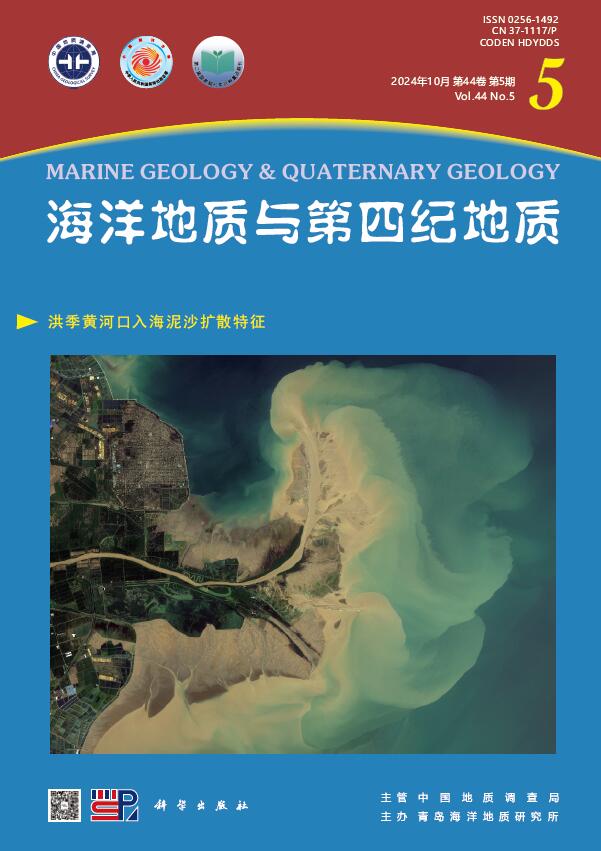BASIC STRCUTURAL PATTERN AND TECTONIC MODELS OF THE SOUTH CHINA SEA: PROBLEMS, ADVANCES AND CONTROVERSIES: BASIC STRCUTURAL PATTERN AND TECTONIC MODELS OF THE SOUTH CHINA SEA: PROBLEMS, ADVANCES AND CONTROVERSIES
引用次数: 23
Abstract
The South China Sea is located at a juncture among the Eurasian,the Indian-Australian and the Pacific plates,being the largest continental marginal sea along the East Asian continental margin.It has experienced a complex transition of continental marginal types.The northern margin was an Andean-type continental margin before 80 Ma,then gradually transferred into a rifted continental margin in the Eocene and a typical passive continental margin since the middle Miocene.The eastern margin was an open water before 17 Ma and gradually became a subduction zone of the trench-arc-basin system by one-way subduction to double-way subduction,when the South China Sea became semi-closed basin since 6 Ma.The western boundary gradually transformed into a continental margin with strike-slipping faulting or transform faulting since 34 Ma.The southern margin was an asymmetric rift-type continental margin corresponding to the northern margin before 34 Ma,and became a passive continental margin during 34~16 Ma and gradually a thrusting-type continental margin after 16 Ma.Complex dynamic settings of the South China Sea have caused many controversies on their origin.The plate dynamic factors include either the Pacific Plate subduction and the indentation of the Philippine Sea Plate along the Taiwan Orogen to the east side the South China Sea,or the Indian Plate oblique subduction and mid-ocean ridge subduction to the west side.They may also be responsible for the uplifting of the Tibetan Plateau and the related extrusions of continental blocks to the north side.At the same time,the mantle dynamics of deep-seated magma underplating,delamination,mantle plume and mantle-hydrated process should not be ignored.南海基本构造格局与构造模式:问题、进展与争议:南海基本构造格局与构造模式:问题、进展与争议
南海位于欧亚板块、印澳板块和太平洋板块的交汇处,是东亚大陆边缘最大的大陆边缘海。它经历了大陆边缘类型的复杂转变。北缘80 Ma以前为安第斯型大陆边缘,始新世逐渐转变为裂谷型大陆边缘,中新世中期以来为典型的被动大陆边缘。东缘17 Ma以前为开阔水域,6 Ma以后南海成为半封闭盆地,经单向至双向俯冲逐渐成为海沟-弧-盆地体系的俯冲带。自34 Ma以来,西界逐渐转变为走滑断裂或转换断裂的大陆边缘。南缘在34 Ma之前为与北缘相对应的不对称裂谷型大陆边缘,在34~16 Ma期间变为被动大陆边缘,16 Ma之后逐渐变为逆冲型大陆边缘。南海复杂的动态环境引发了诸多关于其成因的争议。南海东部的板块动力因素包括太平洋板块的俯冲和菲律宾海板块沿台湾造山带的压陷,西部的板块动力因素包括印度板块的斜向俯冲和洋中脊的俯冲。它们也可能是青藏高原隆升和相关大陆块体向北侧挤压的原因。同时,深部岩浆底镀、剥离、地幔柱和地幔水化过程的地幔动力学也不容忽视。
本文章由计算机程序翻译,如有差异,请以英文原文为准。
求助全文
约1分钟内获得全文
求助全文
来源期刊
CiteScore
0.10
自引率
0.00%
发文量
4176
期刊介绍:
Marine Geology and Quaternary Geology launched in 1981 is a bimonthly academic journal sponsored by Qingdao Institute of Marine Geology, China Geological Survey, and published by the Science Press, China.The journal aims to publish original, cutting-edge, and explorative scientific results in the field of marine geology and sea-land Quaternary geology. The journal focus on reporting the latest research achievements supported by National Natural Science Foundation Project, National Key Project and International Cooperation Project, with priority to the results in China seas, global ocean and three poles, and the comparative study results between offshore and land, regional and global scientific issues.

 求助内容:
求助内容: 应助结果提醒方式:
应助结果提醒方式:


